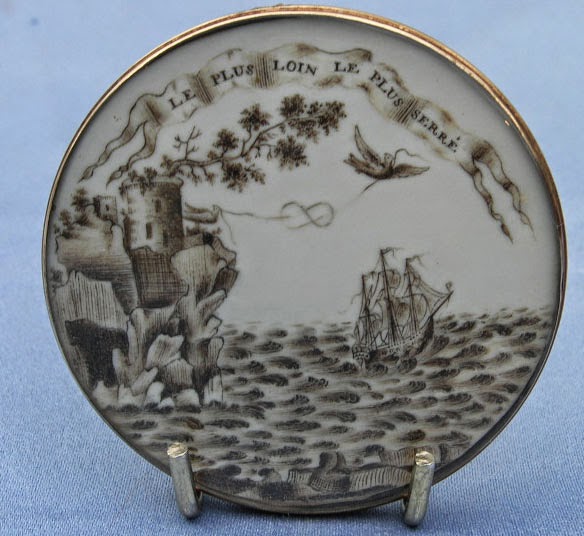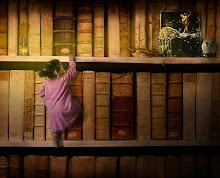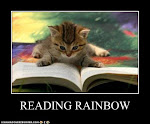and read it all today (after finishing the last, unfinished, pages of The Mystery of Edwin Drood, and before taking up Harriet the Spy for a re-read).

I've read some of Gaiman's books - Neverwhere, Stardust - and loved them, and I've tried others (American Gods) with no luck. I'm intimidated by graphic novels, so I've never done more than peek in an odd copy of The Sandman here or there. But on the strength of Neverwhere alone, I'd say I'm devoted to Gaiman. I'd heard good things about The Graveyard Book, and on a whim, decided to give it a try.
And it was marvellous. Truly marvellous. What a wonderfully brilliant, clever, weirdly moving, book.
I've got nothing to compare it to, really. The only think I can come up with is the half-ghost boy in China Mieville's Un Lun Dun. But this story, of the live boy Bod who is given Freedom of the Graveyard after being orphaned, then adopted by ghosts (The Owenses, last living in the 18th century). Gaiman's cleverness in his cast of graveyard characters is wonderful; I particularly like his habit of citing a name, followed by its tombstone inscription. Like Eva Ibbotson's, Gaiman's ghosts are largely benevolent. Even the vaguely scary Silas, (vampire? i think?) is also an emotionally rich, intriguing character, and much loved by Bod.
The villains of the story, the Jacks of All Trades, are cleverly conceived, as well. Gaiman's obviously interested in story, and stories; in characters, in folklore, in quirks of the language - and I can't say I'm NOT also interested in these things. The way he combines and recreates these various elements is truly inspired.
The story of a live child raised in a graveyard is certain to be harrowing, at moments; hilarious, at moments; mysterious, at moments - and The Graveyard Book is all of those things. But it's also sad, and touching, and wondering, and wondrous, and courteous, and charming.
Bod himself is fantastically drawn. His interactions with everyone - with Liza Hempstock, with Silas, with Miss Lupescu, with Scarlett Amber Perkins, with Nick and Mo - are genuine and revealing. Bod makes mistakes, but - unlike many obnoxious characters in the world (both fictional and real) - he learns from them. He is able to admit mistakes, apologize, and refrain from committing them again. Instead of seeming cowed, weak or unadventurous, Bod seems intelligent - wise, even. Because of the danger of the man Jack (who murdered his family, and wants to murder Bod), Bod is not allowed to leave the graveyard. When he does, he inevitably falls into grave danger, and must be rescued by Liza and Silas.
But instead of persisting in seeing the world beyond the graveyard, Bod realizes he's in danger, and that his danger endangers the "people" he cares about. It's a striking difference from headlong heroic fools like Harry Potter; Bod never makes the horror-film mistake of opening that door, or going down that flight of stairs, and that is a testament to Gaiman's craft. Bod behaves the way a real human would - he learns, he changes, he grows. He makes mistakes, but he does some things beautifully right. The world of the graveyard is a wonderfully interesting one, and Bod learns an incredible amount, about everything (his teachers, all ghosts, have all died before 1900 or thereabouts; the graveyard's oldest inhabitant is Caius Pompeius, who came to England about 100 years after the first Romans. Bod's curriculum is thus wideranging, though admittedly weak in areas like "the modern world.").
Truly, this book makes me wish for more in a series - the Graveyard is such a compelling place, such an inspired setting, and Gaiman (of course) handles this setting brilliantly. The characters - especially Liza and Silas - are fascinating in their own right, and makes me want to read more about them. The possibilities of a graveyard "populated" by people ranging so far and wide across history and class are incredibly exciting.
This is a book to read again and again; it is one that I will have to purchase for my own library. I can't give a book much higher compliment than that, since - out of necessity - I strictly limit my new-book-buying.



